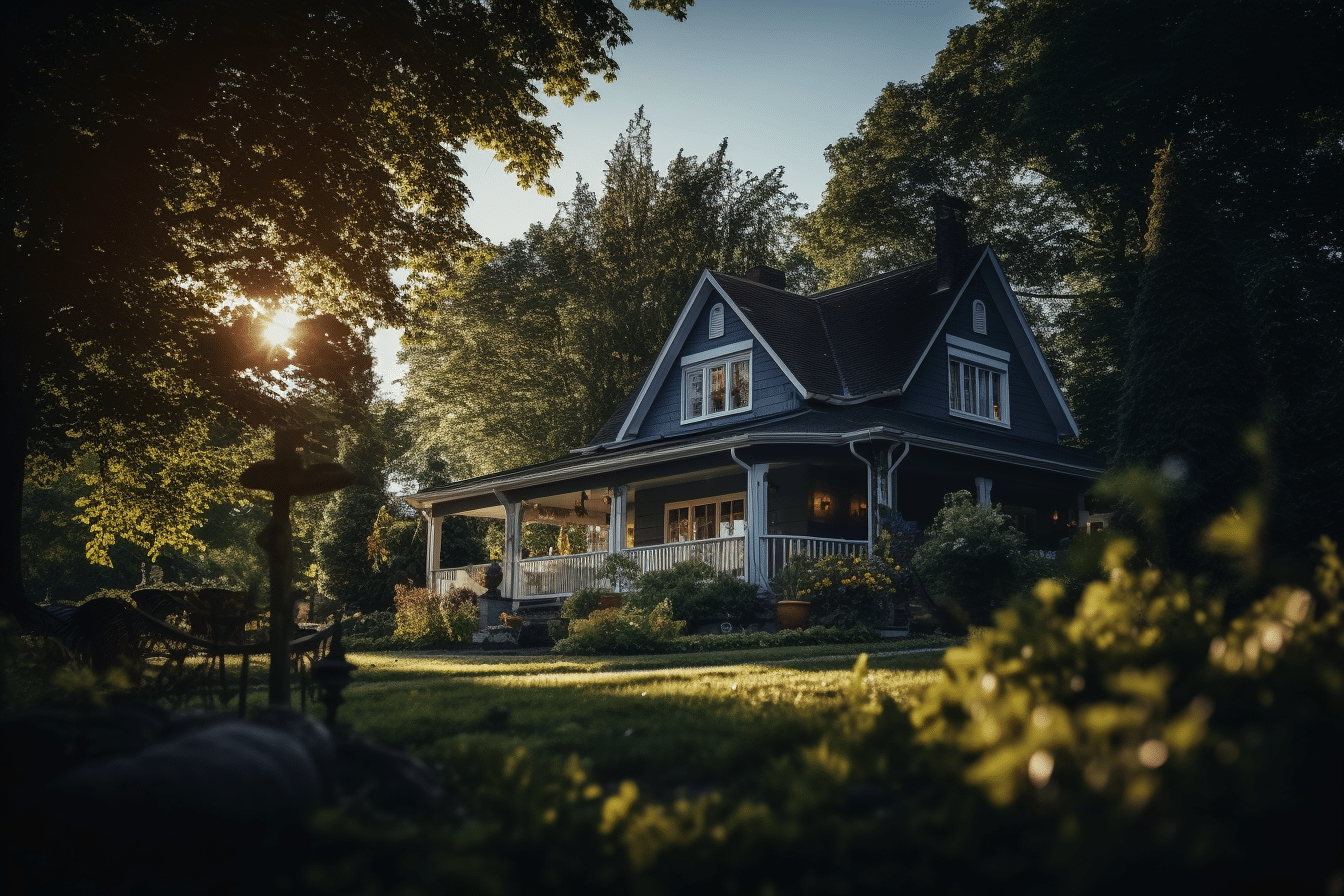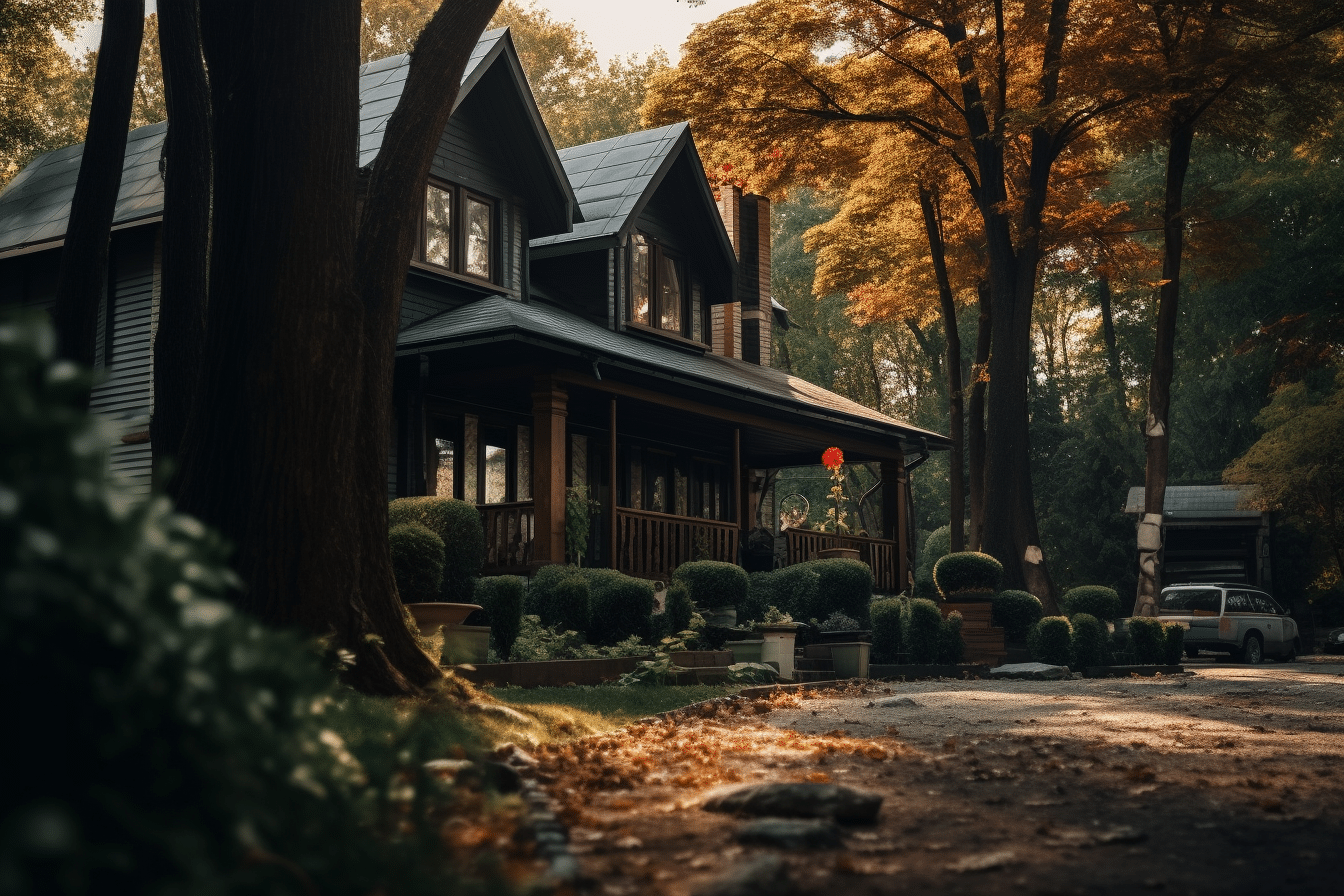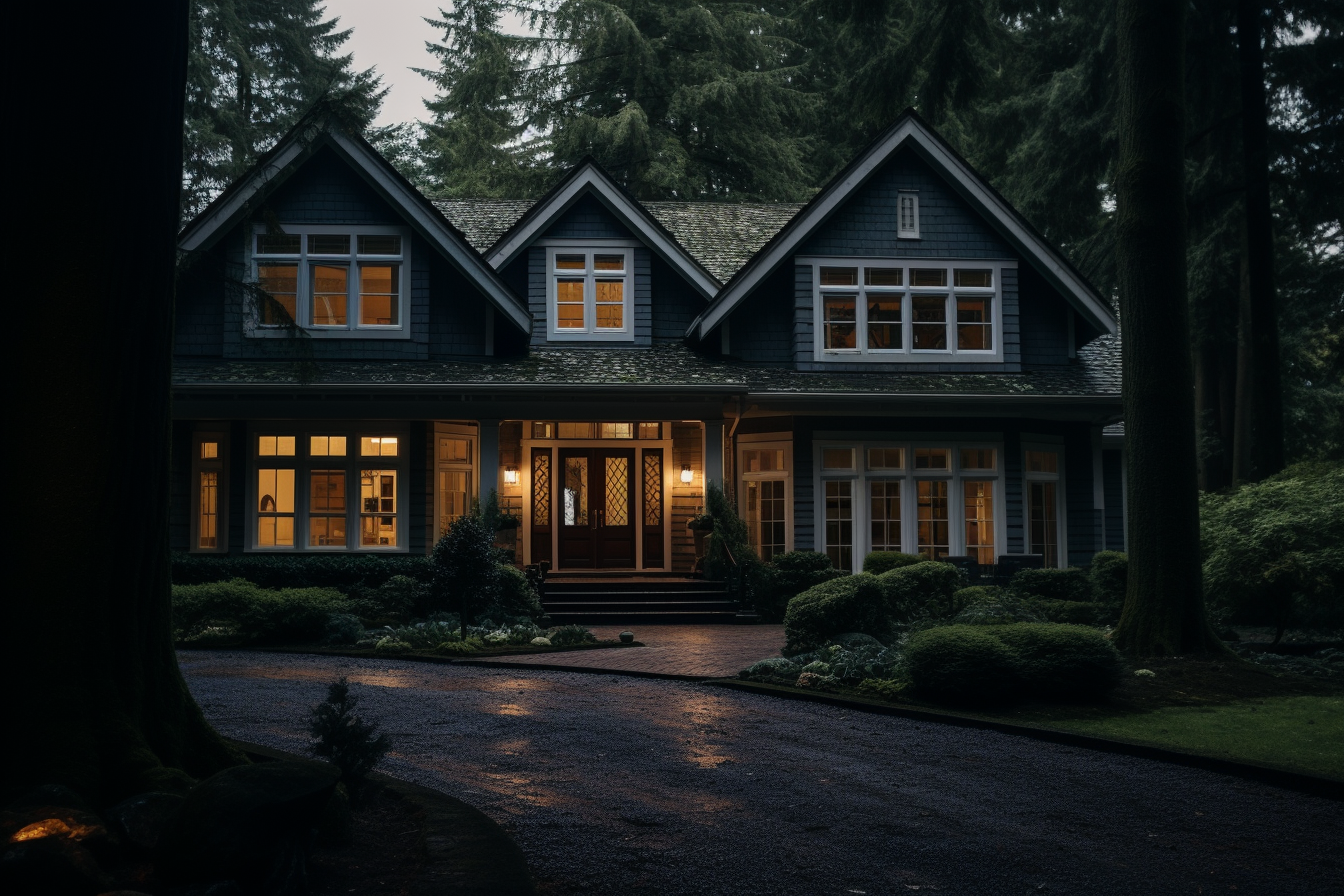
What to Look for When House Hunting: Quick Guide for Buyers
House hunting can be an exciting yet challenging journey, especially for first-time homebuyers. Getting it right involves considering several factors that could ultimately make a significant difference in your long-term satisfaction. This article will cover some critical aspects of the process, such as understanding your budget, choosing the right location, and evaluating the home’s condition to ensure you make a well-informed decision.
As a potential homeowner, it’s essential to know what you want in your new home and what features you’re willing to compromise on. Consider aspects such as the property size and type, home features and amenities, and the neighborhood and community context. Analyzing these elements will help you settle on a house that matches your lifestyle and personal preferences.
Being well-versed in the buying process and asking the right questions is vital to avoid potential pitfalls and disappointments. With the tips and insights provided in this article, you’ll be better equipped to find the perfect home that suits your needs and budget while simplifying the house hunting process.
Key Takeaways from What To Look For When House Hunting
- Know your budget and prioritize desired features
- Location and neighborhood are pivotal in decision-making
- Evaluate the home’s condition and understand the buying process
Understanding Your Budget
When house hunting, one of the most important aspects to consider is understanding your budget. Setting a realistic budget is essential to finding a home that suits both your lifestyle and financial needs.
Before starting the search, it’s a good idea to obtain a mortgage preapproval from a lender. This helps you understand your borrowing capacity and what you can comfortably afford. Plus, having a preapproval letter can also give you an advantage when making an offer on a property, as it shows sellers that you’re a serious buyer.
Remember to carefully calculate all potential expenses, not just the price of the home itself. Some extra costs to keep in mind include:
- Mortgage payments
- Property taxes
- Homeowners insurance
- Maintenance costs
- Utilities
- Closing costs
Creating a detailed budget outline can help you avoid some common house-hunting mistakes and ensure you find a home that aligns with your financial situation. For a clearer picture of your budget, consider these factors:
| Expense | Description |
|---|---|
| Down Payment | The upfront payment to secure a mortgage, usually a percentage of the purchase price. |
| Monthly Mortgage Payments | The monthly payments towards the mortgage, including principal and interest. |
| Property Taxes | Annual tax based on the assessed value of your home, paid to your local government. |
| Homeowners Insurance | Insurance coverage to protect your home and possessions from disasters and other damages. |
| Maintenance and Repairs | Costs for maintaining and repairing the home, such as landscaping and emergency repairs. |
By understanding your budget and the various expenses involved, you can make more informed decisions when house hunting and find a property that meets your financial and lifestyle requirements. Keep these guidelines in mind to set yourself up for success during the home search process.
Finding the Right Location
When house hunting, finding the right location is a crucial element. It significantly impacts the overall comfort and satisfaction of living in your new home. Consider the following factors while selecting the perfect location:
Neighborhood
Take the time to explore the neighborhood. Is it safe? Are there well-maintained public spaces, such as parks, sidewalks, and street lights? Make sure to talk with residents and read online reviews. A neighborhood is where you’ll spend time with neighbors, walk your dog, and feel relaxed – so it must match your vibe.
School Districts
If you have children or are planning to, the quality of nearby schools plays a vital role in choosing your new home. Even if you don’t have kids, strong schools can help to maintain or increase your property value. To evaluate school districts, refer to:
- School rankings from reliable websites
- Student-teacher ratios
- Percentages of students heading to higher education
- Educational programs and extracurricular activities
Commute Times
House hunting also requires considering your daily commute. Will you be using public transportation, driving, or working from home? Look at the proximity to major roads, bus routes, train stations, and airlines. Remember that a shorter commute time not only saves you time but also reduces fuel costs and contributes to your overall well-being.
Proximity to Amenities
When selecting the right location, it’s essential to think about the proximity to essential amenities. You might want to prepare a list of the facilities that matter to you. Here are some examples:
- Grocery stores
- Medical facilities
- Gyms and sports facilities
- Entertainment venues
- Shopping malls
Feel free to modify the list according to your preferences and make sure the desired amenities are within a reasonable distance from your potential home.
So, invest some time researching the various factors that contribute towards the right location for your new house. A well-chosen location provides the perfect foundation for a comfortable and convenient place to call home.
Assessing the Property Size and Type
When house hunting, it’s essential to consider the size and type of the property. Different types of houses come in various sizes, and finding the right fit for your needs will make your living experience that much better.
Take a close look at the number of bedrooms in a property. Think about your family size or if you plan to have guests frequently. A general rule of thumb for bedroom requirements might look like:
- 1-2 people: 1-2 bedrooms
- 3-4 people: 2-3 bedrooms
- 5+ people: 4+ bedrooms
Additionally, consider the number of bathrooms in the house. It’s not just about the total count but also their placement throughout the home. Multiple bathrooms can help all members get ready for the day simultaneously or provide convenience for guests.
Also, consider the floor area of the property. Bigger homes typically have larger rooms, providing more space for furniture and personal items. However, they may also cost more to heat, cool, and maintain. Consider your lifestyle and preferences when choosing the right size home.
Different types of houses come with varying advantages and disadvantages. Here are four common property types to consider:
- Single-family homes: Offer more privacy, freedom for modifications, and potential for a yard. However, they can be more expensive than other options and may require more maintenance.
- Townhouses: Typically more affordable than single-family homes, townhouses share walls with neighbors and usually come with shared amenities. Still, they may lack the space and privacy of a detached home.
- Condos: Suited for those seeking a low-maintenance lifestyle, condominiums come with shared amenities and maintenance responsibilities, but may have high monthly fees and limited autonomy over the property.
- Apartments: Ideal for renters, apartments provide flexibility but may lack space, privacy, and long-term stability compared to homeownership.
In summary, when house hunting, assess the property size by considering the number of bedrooms, bathrooms, and the overall floor area. Additionally, think about the different types of houses available and the pros and cons of each. Taking the time to evaluate these factors will lead to a more suitable choice for your living needs.
Analyzing Home Features and Amenities

When house hunting, it’s essential to analyze the home features and amenities to ensure you’re making the best decision for your needs. In this section, we’ll go over some important points to consider in both the interior and exterior of the home.
Interior Checklist
There are plenty of elements to examine inside the house. Below is a handy list to get you started:
- Kitchen: Check for quality countertops, storage, and appliances. An updated and well-equipped kitchen is a key selling point for many.
- Home Office: With remote work growing in popularity, consider if there is suitable space for a home office.
- Fireplace: Look for a well-maintained fireplace if a cozy evening by the fire is important to you.
- Amenities: Make a list of must-have and nice-to-have amenities such as air conditioning, central heating, or automated systems.
- Appliances: Assess the quality and age of appliances. Note anything that may need replacing soon.
- Fixtures: Check for functioning faucets, showerheads, light switches, and power outlets, as these can be expensive to replace.
- Windows: Consider their size, placement, and condition. Windows that seal properly and let in ample natural light can make a huge difference in your home experience.
Exterior Considerations
While the interior is important, don’t forget to evaluate the exterior as well! Here are some points to help you:
- Roof: Inspect it for signs of damage or need for replacement. Be prepared for the cost of a new roof if you’ll have to replace it in the near future.
- Exterior: Look at the overall condition of the exterior walls, siding, and foundation. Take note of cracks or settling issues that may lead to bigger problems later.
- Fence: If a fenced-in yard is important for you, check the condition of the fence. Factor in the cost of installing a new one if necessary.
- Landscaping: Consider if the landscaping suits your preferences or if you’ll need to invest time and money to create your ideal outdoor space.
By keeping this guide handy and following the suggestions above, you’ll be well on your way to finding a home that meets your desires and needs. Happy house hunting!
Evaluating the Home’s Condition
Potential Repair Costs
When house hunting, it’s crucial to estimate the potential repair costs of a home. Check for issues with the roof, windows, plumbing, and electrical systems. Look out for unpermitted additions and ensure all required permits are in place. Keep in mind that undisclosed repairs or renovations can significantly impact your budget.
Unseen Issues
Along with visible issues, be aware of unseen problems that may arise. A home inspection can reveal critical information about a property, such as:
- Water damage in hidden areas
- Defective heating or cooling systems
- Issues with the yard or pool
If the inspection identifies any issues, consider negotiating with the seller to address these concerns before finalizing the purchase.
Home System Lifespans
Evaluating a home’s condition also involves understanding the lifespans of various systems, such as:
- Roof
- Heating and cooling
- Plumbing
- Electrical
Consider the age of these systems and assess whether they will need replacement soon. Factor in these costs when deciding on a potential home to ensure you’re prepared for any necessary upgrades.
Home Maintenance
Maintaining a home is essential for preserving its condition and contributes to its value over time. When house hunting, assess the level of maintenance required for the property, including cleaning, landscaping, and maintaining the pool if applicable. A well-maintained yard and exterior can be an indicator of how well the home has been cared for overall.
By thoroughly evaluating a home’s condition and factoring in potential repair costs, unseen issues, and necessary maintenance, you can make a more informed decision when purchasing a property.
Considering Neighborhood and Community Context
When house hunting, it’s essential to think about the neighborhood and the community context. After all, these factors will greatly impact your day-to-day life and overall experience in the area.
First and foremost, consider the neighbors and the local vibe. Are they friendly? Do they share your interests or values? A quick way to assess this is by taking a stroll around the neighborhood and chatting with residents. You can also ask the real estate agent or look up online forums for locals’ insights.
Next up: schools. For families with children, access to quality education is a top priority. Research nearby schools, as well as their ratings, class sizes, and extracurricular offerings. One helpful resource is the National Center for Education Statistics’ School Search tool.
Here are a few important factors to consider:
- Distance from home to school
- Availability of public transport or school bus routes
- School ratings and test score data
- Extracurricular activities and programs
Another crucial aspect of community context is crime rates. Review local crime statistics and police reports to get a sense of the area’s safety. Websites like NeighborhoodScout and City-Data offer crime rate data and other useful insights about neighborhoods.
Some helpful safety aspects to consider:
- Total Crime
- Property Crime Rates
- Violent Crime Rates
- Community Policing Programs
- Neighborhood Watch Groups
Lastly, don’t forget about community amenities and resources. Check for nearby parks, libraries, community centers, and shopping facilities. These areas contribute to a fulfilling lifestyle and offer opportunities to engage with fellow residents.
So when hunting for your dream home, remember to explore the neighborhood, evaluate local schools, review crime rates, and consider community offerings. These tips will ensure you find not only the perfect house but also the right community to call home.
Lifestyle and Personal Preferences

Entertainment and Leisure
When house hunting, consider the entertainment and leisure options available to match your lifestyle. For instance, does the house have a yard and view for outdoor relaxation, or a large kitchen for hosting gatherings? Nearby community amenities like parks, pools, or gyms can also be important factors.
- A pool may be a desirable feature for those who enjoy swimming or hosting pool parties.
- A deck provides a comfortable outdoor space for barbecues and entertaining.
- For families with pets, a fence around the yard can provide a safe space for them to roam freely.
Family Considerations
In addition to general lifestyle preferences, you should also think about specific family considerations. For families with children, a home with enough bedrooms is essential, as well as the safety of the neighborhood.
- Proximity to schools, parks, and recreational facilities should be considered.
- Checking local traffic conditions can ensure a safe environment for kids to play in the neighborhood.
Remote Work and Commuting
With the growing trend of remote work, having an organized home office has become more important. In this case, you should look for a home with an extra room or space that can be transformed into a home office without any disturbance.
- High-speed internet availability is crucial for remote work or tasks that require a strong connection.
- If commuting is part of your routine, consider the proximity to public transportation or highways to make your daily journey easier.
By taking into account these lifestyle and personal preferences, you can make a well-informed decision when searching for the perfect home that suits your needs.
The Buying Process and Questions to Ask
When house hunting, it’s essential to understand the buying process and know which questions to ask. This section provides a brief overview of the process, focusing on making an offer and closing the sale.
Making an Offer
Once a suitable house is found within the desired price range, the next step is to make an offer. Before doing so, it’s advisable to have a preapproval letter from a mortgage lender to show the seller that a potential buyer is serious and financially capable of purchasing the property.
When making an offer, consider the following:
- Price: Research comparable homes in the area to determine if the asking price is reasonable.
- Negotiations: Be prepared to negotiate with the seller; seek the guidance of a skilled real estate agent in this area.
- Contingencies: Consider including contingencies in the offer, such as a home inspection or appraisal requirement.
- Down payment: Be ready to provide earnest money as a good faith deposit showing the buyer’s commitment.
- Determine your price range.
- Obtain a preapproval letter.
- Research comparable homes.
- Enlist the help of a real estate agent.
Closing the Sale
After making an offer and agreeing on the terms with the seller, the next step is to finalize the sale. This process can be complex and generally involves the following:
- Home inspection: Schedule an inspection to ensure there are no major defects in the property.
- Mortgage: Secure the mortgage by providing all necessary documentation to the lender for final approval.
- Title search: Ensure the property has a clear title, meaning there are no liens or claims against it.
- Closing costs: Be prepared to pay various fees, such as attorney fees, title insurance, and appraisal fees, among others.
- Signing and transferring: Sign all necessary documents and transfer the funds to finalize the sale.
Questions to Ask a Real Estate Agent:
- How can we ensure a smooth negotiation process?
- What contingencies should we include in our offer?
- Is there anything about this property that concerns you?
By following these steps and remembering to ask essential questions, buyers can navigate the buying process and make informed decisions when searching for a new home.
Luxury Specialist at McGraw Realtors
With a diverse background, including a career as an Air Force fighter pilot and entrepreneurship, Bill transitioned to real estate in 1995. Co-founding Paradigm Realty with his wife, Charlene, he quickly rose to prominence in Oklahoma City’s luxury real estate scene. Now, as one of the top agents with annual sales surpassing $20 million, Bill’s dedication to exceptional service remains unparalleled. With a legacy spanning over two decades in the industry, Bill’s expertise and commitment make him a trusted name in luxury real estate.